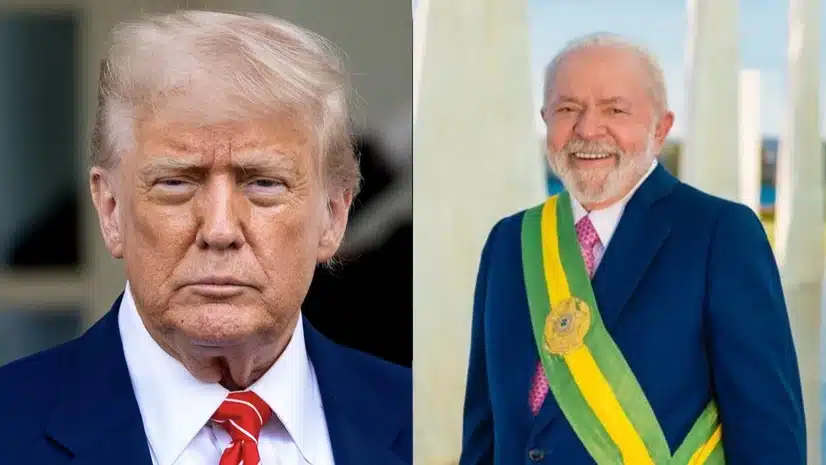US Imposes 50% Tariff on Brazil Amid Economic Concerns Linked to Bolsonaro’s Prosecution

US President Donald Trump has officially enacted an executive order imposing a staggering 50% tariff on imports from Brazil, a move he claims is necessary to protect American interests. This decision, which escalates tensions between the two nations, follows Trump’s earlier threats and cites Brazil’s internal political actions, including the prosecution of former President Jair Bolsonaro, as justification for the tariffs. The new tariffs will take effect seven days after the signing of the order and will be applied in addition to an existing 10% levy, although certain imports will be exempt.
Details of the Tariff Implementation
The executive order signed by President Trump invokes a 1977 law, declaring Brazil’s actions an economic emergency for the United States. The new 50% tariff will apply to a range of imports, but not all products will be affected. Exemptions include civil aircraft and parts, aluminum, tin, wood pulp, energy products, and fertilizers. This significant increase in tariffs marks a notable shift in trade relations and reflects ongoing frustrations from the U.S. regarding Brazil’s political landscape. The tariffs are set to take effect a week after the order is signed, intensifying the economic pressure on Brazil.
Political Context and Reactions
Trump’s decision to impose tariffs follows a letter sent to Brazilian President Luiz Inacio Lula da Silva on July 9, where he warned of potential economic repercussions. The White House statement accompanying the executive order accused members of the Brazilian government of actions that undermine U.S. interests, including political persecution and human rights violations. The statement specifically highlighted the Brazilian judiciary’s attempts to control social media platforms, suggesting a crackdown on free expression. While specific platforms were not named, speculation points to X and Rumble as potential targets of these actions.
In response to the tariffs, President Lula expressed his intention to defend Brazil’s sovereignty, leaving an animal rights event early to address the situation. This diplomatic rift signals a growing divide between the two nations, particularly as Trump appears to align himself with Bolsonaro, who has faced legal challenges following his election defeat in 2022.
Sanctions and Visa Restrictions
In addition to the tariffs, the Trump administration has also imposed sanctions on Brazilian Supreme Court Justice Alexandre de Moraes. These sanctions are based on allegations of suppressing freedom of expression and his involvement in the ongoing trial against Bolsonaro. De Moraes is overseeing the criminal case against Bolsonaro, who is accused of attempting to remain in power after losing the 2022 election. This move adds another layer of complexity to U.S.-Brazil relations, as it directly targets a key figure in Brazil’s judiciary.
Earlier in July, the U.S. State Department had already announced visa restrictions on Brazilian judicial officials, including de Moraes. These actions reflect a broader strategy by the Trump administration to exert pressure on Brazil’s political system and highlight ongoing concerns about the rule of law and human rights in the country. The combination of tariffs, sanctions, and visa restrictions underscores the escalating tensions and the potential for further diplomatic fallout between the United States and Brazil.
Observer Voice is the one stop site for National, International news, Sports, Editor’s Choice, Art/culture contents, Quotes and much more. We also cover historical contents. Historical contents includes World History, Indian History, and what happened today. The website also covers Entertainment across the India and World.

